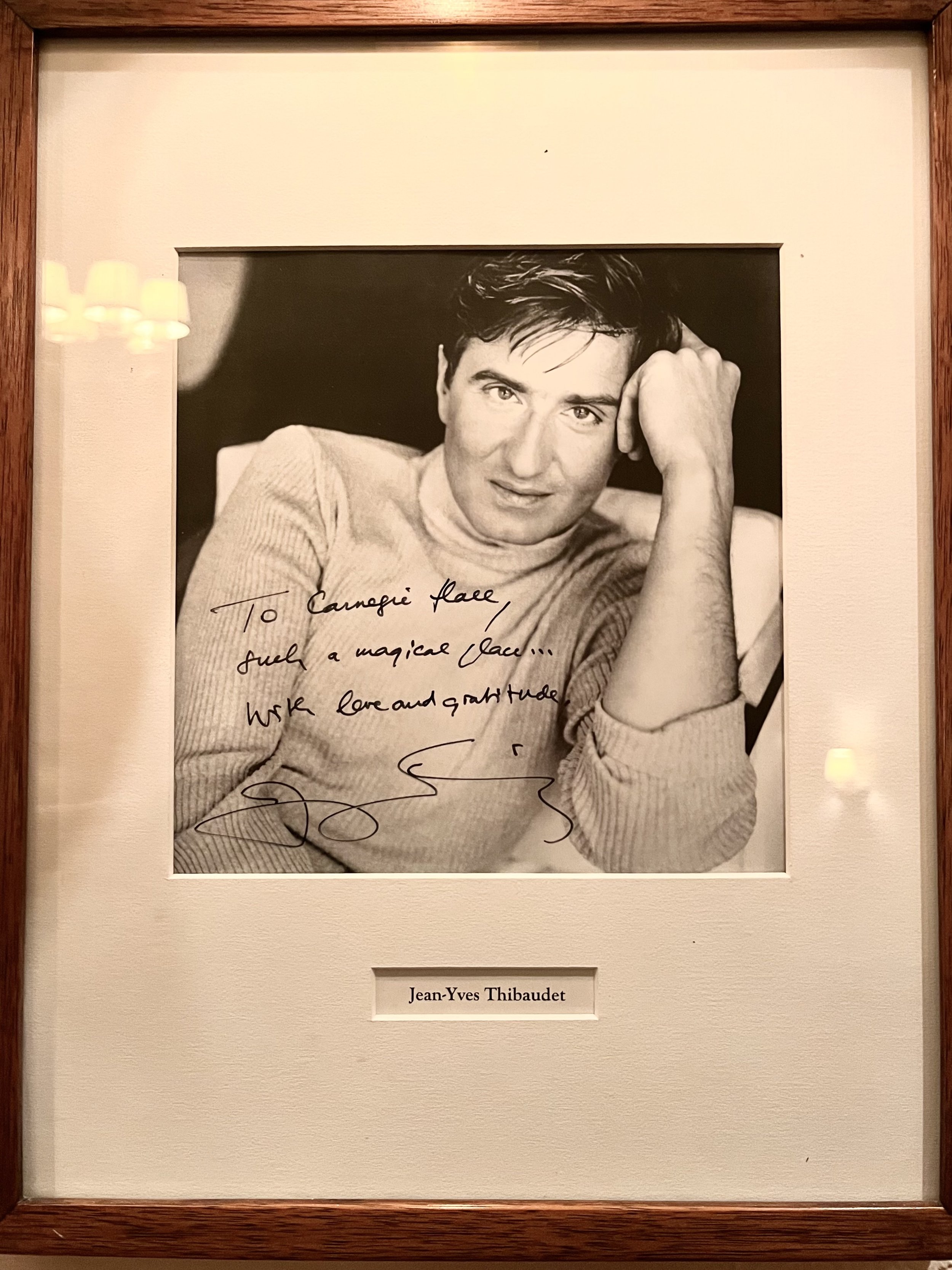REVIEW: Piano Trio Heaven at Carnegie Hall
October 24, 2023
What is it about the piano trio — the enduring ménage à trois of violin, cello, and piano — that roused so many composers to produce some of their finest music? Like a sonata-on-steroids, or a salon-sized-symphony, the resulting body of work for this combination of instruments is one of classical music’s richest and most gratifying.
No wonder that, with ensembles such as the Beaux Arts Trio having retired, the piano trio becomes an occasion for celebrity soloists to form ad hoc threesomes. Three such co-headliners are currently joining forces on tour with some of the highlights of that repertoire. Jean-Yves Thibaudet, one of the finest pianists concertizing today, Georgian-born German violinist Lisa Batiashvili, and deservedly ubiquitous cellist Gautier Capuçon brought their thrilling trio to Carnegie Hall for an evening of exalted, transcendent music making in masterpieces by Haydn, Mendelssohn, and Ravel.
The pianoforte itself was a relatively new commodity when Joseph “Papa” Haydn was a trailblazer of the genre, writing more than thirty trios for the combination of instruments. His Piano Trio in E Major, Hob. XV: 28, from 1797, is surprisingly florid, quirky, and romantic for the date; clearly an influence on Beethoven (whose piano trios are probably the greatest hits of the literature). The group played with careful attention to Haydn’s score, yet lifted the notes off the page, filling the cavernous hall with both grand gesture and delicate detail.
Contrasting Haydn’s pioneering entry into the canon, the superstar trio segued into the apotheosis of the trio literature, Maurice Ravel’s Piano Trio, composed in a fury of inspiration in 1914 as Europe descended into the First World War. It was given a ravishing reading here, most memorably in the third movement, a slow meditation beginning and ending with a mournful melody in the lowest register of the piano, which resonated warmly to the auditorium’s rafters.
Thibaudet is a master of tone color, judiciously applying enough pedal (yet never to excess), and always allowing the music’s message to be unsoiled by undue expressiveness. Crucial for a pianist in a chamber music setting, he possesses an acute ear for inner harmony, and for the importance of the bass line.
Batiashvili plays with exceptional control, yet a lusty cantabile, a hearty, soulful singing line. Capuçon’s beaming elegance belies the keen intelligence in his playing, knowing when to take center stage, and when to politely take up the rear. The three together simply shimmer in the ravishing finale of the Ravel trio.
By the time Felix Mendelssohn composed his Piano Trio No. 2 in C Minor, Op. 66, in 1845, he was a leading figure in Europe, having been music director to the King of Prussia, and having already written what would become his most enduring morsel — the wedding march from incidental music for A Midsummer Night’s Dream. His two piano trios are showy and substantial, and tonight’s virtuoso ensemble fashioned the C Minor into a complete entertainment.
I was blown away by the Finale’s sweeping dynamics. Not merely observing crescendo, decrescendo, or sforzando, they sculpted the air in the room, producing plush swells like a force of nature. As an encore, they treated us to the last movement of Dvorak’s Dumky Trio, rich and rhythmic, continuing the evening’s strengths of musical cohesion and artistic purpose.
***






